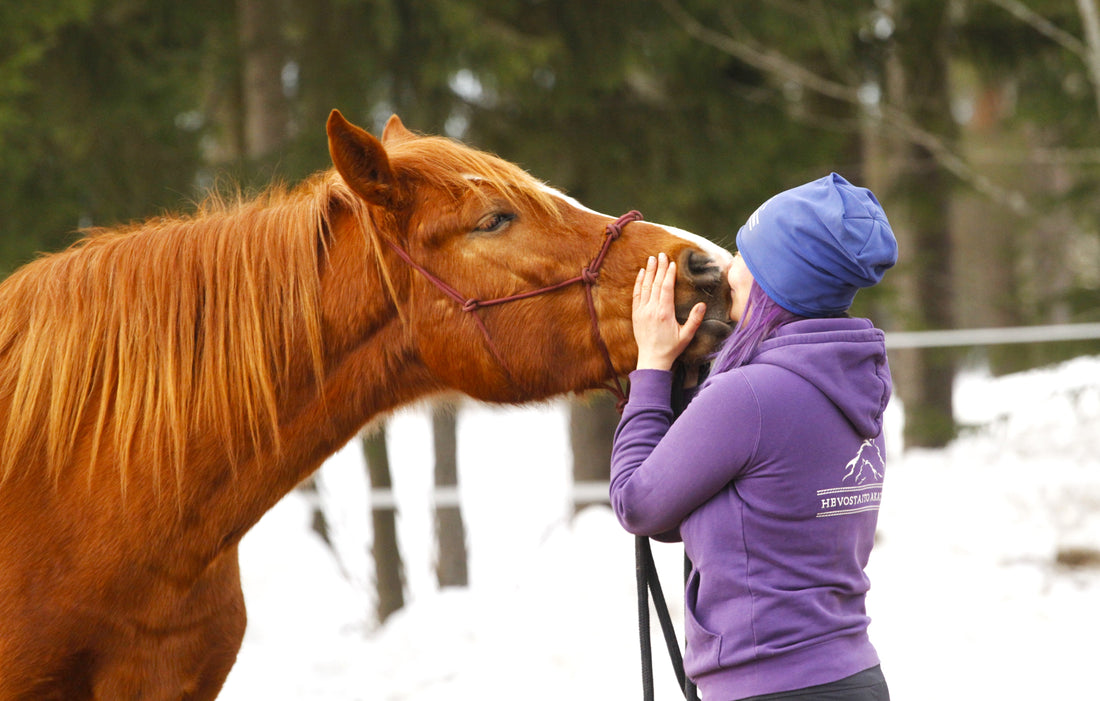
What does it matter?
Written by horse trainer and rehab professional Mervi Pakola
What does it matter that we have come up with different explanations for horse behavior, which is actually pain behavior. When we have not understood that the behavior is telling us about the horse's pain, other explanations have been invented.
Sometimes the reason is the breed, sometimes the gender, sometimes the weather or some other nice explanation. Sometimes the owner is blamed.
Of course, it is true that we horse owners often have a lot to learn. Handling and training play a big role in horses’ behavior. When you are good at teaching horse things, consistent and clear in what you do, it is easy for the horse to understand what is expected. Then it is also easier to notice pain behavior, because it becomes apparent that the smart training methods that usually work, doesn’t. If the thing you are trying to teach the horse causes pain, development can be really slow or not happen at all.
A sore horse learns worse anyway, because it is constantly under more stress than a healthy horse.

There are of course also differences between the sexes, but you should learn to distinguish between what is the real difference and what is pain related. For example, aggressive or irritable behavior is often pain related regardless of gender.
There are no mares who are irritable by nature. Even if they are red.
I have had a red mare by the way. She was never irritable, even when in pain. I have had several mares, and none of them have been irritable. I have also met many irritable horses of different sexes. Many of these have been diagnosed with some kind of pain-causing problem.
So what is the reason these explanations are harmful and why do I often make social media updates where I bust these myths?
When we label mares irritable, we do not help them with the pain they are trying to tell us about. Or when we call stallions unpredictable and difficult, we do not understand that such a stallion is probably in pain.

When pain behavior is mistaken for something other than pain, help is not received from the horse.
Such a horse can be in pain for years. Then we can say that “it has always been like that”. Which is a really sad sentence. When you say that from a horse that is in pain and has “always” been like that, probably that horse has been in pain for a very long time.
I have met many horses that have been in pain for years. I have had some myself. In order to avoid such situations, it is important to learn to recognize pain in horses. It is not always easy, but this website was founded with the aim of spreading information about horse pain, so that horses in pain can get help earlier and we can begin to understand our horses better.
So the answer is: it makes the difference whether a horse gets help for its pain or not.
